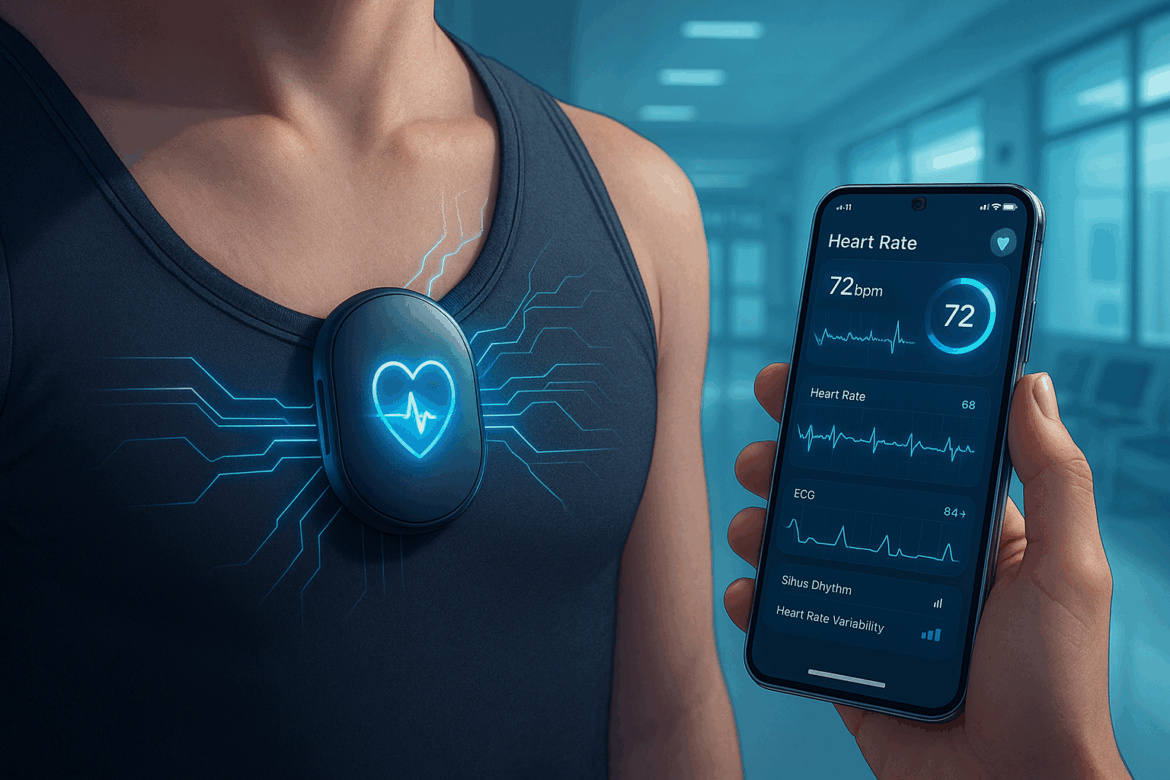Keeping tabs on your heart health matters more now than ever, but regular trips to the hospital for checkups can be a hassle. That’s why wearable ECG monitors have caught so much interest. These gadgets allow you to track your heart from the comfort of your own home. But can they replace a trip to your doctor?
Let’s dive in and see.
What Is a Wearable ECG Monitor?
A wearable ECG (electrocardiogram) monitor is a clever gadget that keeps an eye on your heart’s electrical activity. You’ll spot it in devices like smartwatches, chest straps, or small patches that stick to your skin. These tools give you a peek into your heartbeat and can spot any unusual patterns.
Gadgets like the Apple Watch Fitbit, and KardiaMobile have made this technology popular bringing heart monitoring to more people than ever before.
How These Devices Work
Your heart sends out tiny electrical signals with each beat. Wearable ECG monitors have sensors built into them to catch these signals. The device then creates a picture that shows how your heart is doing.
If something seems off — like an uneven heartbeat — the gadget might give you a heads-up or store the info for your doctor to check out later.
Why People Love Wearable ECG Monitors
1. Keep an Eye on Your Heart Around the Clock
Unlike a hospital ECG that gives a snapshot, these wearables can keep tabs on your heart day and night. This helps catch issues that only pop up now and then.
2. Say Goodbye to Wires and Appointments
With a wearable ECG, you don’t need to visit the hospital for every checkup. Just put on the device, and it works in the background.
3. Catch Problems Before They Turn Serious
Numerous heart problems give warning signs before they turn into emergencies. Wearable ECGs can help you and your doctor spot these signs .
4. Share Your Heart Data in Real Time
Some devices can send your heart information directly to your doctor helping them stay in the loop without requiring an in-person visit.
A Few Drawbacks to Keep in Mind
1. Not a Complete Substitute for Hospitals
These devices are useful, but they don’t provide as much detail as hospital equipment. They work well to detect issues , not to make full diagnoses.
2. Data Isn’t Always Accurate
Sometimes, these wearables can trigger false alarms or fail to detect certain issues. Users should view them as helpful tools, not definitive answers.
3. Your Health Data Is Online
Like any smart device wearable ECGs gather personal data. So users should check how companies store and protect their information.
Who Can Benefit the Most?
Wearable ECGs have value for many people, including:
- Anyone with a history of heart problems
- People who experience irregular heartbeats or chest discomfort
- Fitness enthusiasts who want to track heart performance
- Older adults who need regular monitoring
Even so, if you’re struggling with severe symptoms or a known health issue, consult a doctor before relying on a wearable gadget.
Is This the Next Big Thing in Heart Health?
Wearable ECG monitors mark a significant advance in personal health tracking. While they can’t replace hospital visits, they do an excellent job bridging the gap between checkups and giving individuals more control over their heart health.
As this tech gets better, it might become a crucial part of daily healthcare for millions of people.
